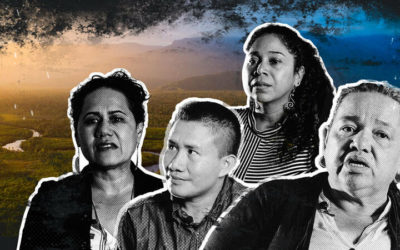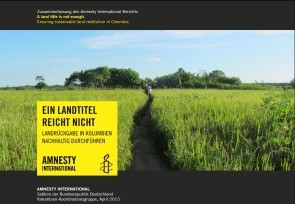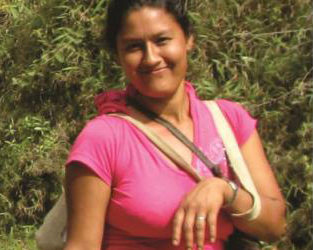autor: oidhaco
PRESS RELEASE
Brussels, 16 October 2012. This week marks international days for food, rural women, and eradication of poverty. Rural women are among the main victims of the conflict: 80% of the more than five millions of internally displaced persons are women, children and young people. Women are the main persons in charge of small-scale farming. But this has become more and more difficult, mainly due to land grabbing related to mining extraction and agro industrial projects, as well as to the dynamics of the armed conflict.
While in Colombia 63% of the value of agricultural production comes from the peasantry, the concentration of land is increasing: big property – with over 10 family farm units – went from possessing 39% of land in 1999 to 53% in 2008. Large landholdings (‘latifundios’) are usually dedicated to agroindustrial projects mainly for export. Due to this situation, food security in Colombia is at risk. According to the latest report of the Food and Agriculture Organization of the United Nations (FAO), more than 500,000 children under five suffer from chronic malnutrition in Colombia, 10,000 of them die every year due to diseases that could be prevented, out of which 3,300 result from malnutrition. The FAO warns that 41% of the 46 million of Colombians suffer from food insecurity. For this organization “agricultural growth involving smallholders, especially women, will be most effective in reducing extreme poverty and hunger when it generates employment for the poor”. Poverty rates in Colombia are alarming: 20 million of poor, of which seven are in extreme poverty. Half of the indigenous population is poor and most of their children suffer from chronic malnutrition. In its report of 2011, the United Nations Development Programme (UNDP) puts emphasize on these data and reveals that Colombia is the third most unequal country in the world, after Angola and Haiti.
Taking this reality into account, Oidhaco, together with many other European, Colombian and Latin American organizations, expressed its surprise in an open letter released last week before the insistence of the EU to sign a free trade agreement with Colombia, when impact assessments warn that the FTA will, among other things, result in an increased pressure on land and territory. „Instead of fostering agroindustrial projects for export, the EU should rather give political and economic support to peasant initiatives, resistance initiatives on the territory, and ensure that small farmers organizations with experience in peace building from a rural perspective can be heard in the process of dialogue starting in Oslo in these days“ says Vincent Vallies, spokesperson of Oidhaco.



